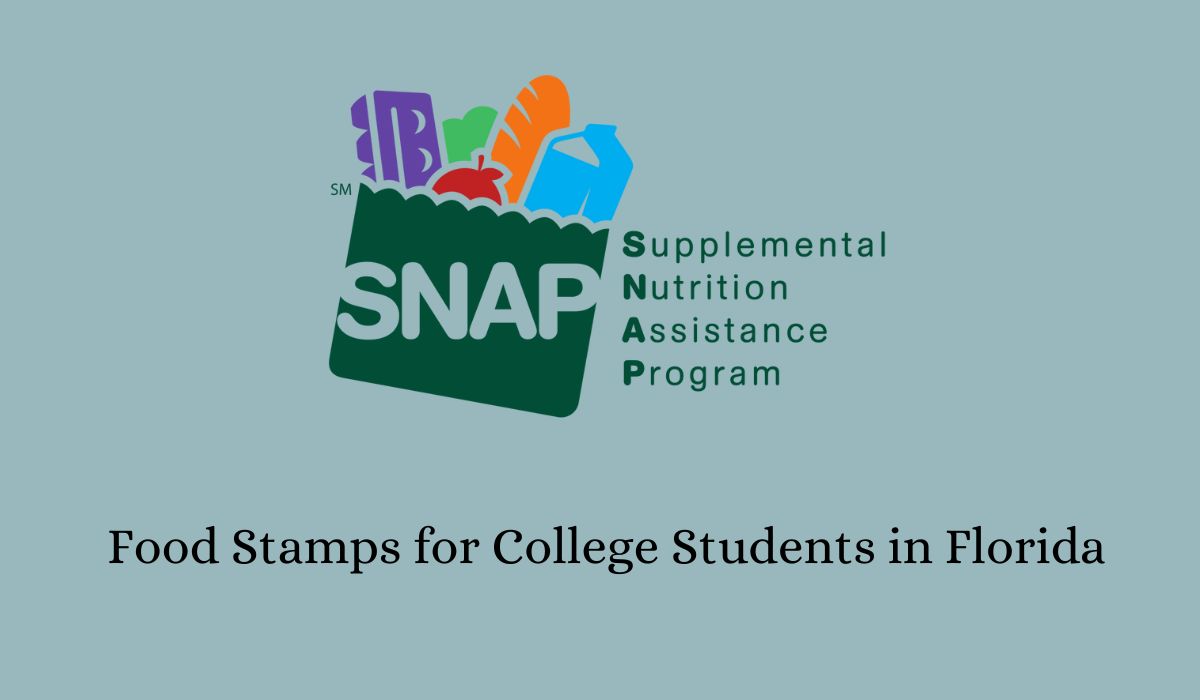As a college student, you have enough on your plate with classes, assignments, and extracurricular activities. The last thing you want to worry about is putting food on the table. However, the reality is that many college students struggle to afford basic necessities like food while pursuing higher education.
This is where food stamps, also known as the Supplemental Nutrition Assistance Program (SNAP), come in to provide much-needed assistance. In this guide, we will discuss everything you need to know about food stamps for college students in Florida.
Can College Students Apply for Food Stamps in Florida?
Yes, college students can apply for food stamps in Florida if they meet certain eligibility criteria. These include being a U.S. citizen or qualified alien, having a low income, and meeting the work requirements set by the program.
Eligibility Criteria for College Students
The general perception that college students are ineligible for SNAP has been a barrier for many. However, students can qualify under certain conditions:
- Income Requirements: Your income must be within certain limits. SNAP has both gross and net income limits.
- Student Status: Being a student, you must meet additional criteria to be eligible. Typically, students between the ages of 18 and 49 who are enrolled at least half-time in higher education must meet at least one of the following conditions:
- Work at least 20 hours per week.
- Be enrolled in a state or federally-financed work-study program.
- Be responsible for the care of a dependent household member under the age of 6, or a dependent household member aged 6-11 when adequate childcare is not available.
- Be a single parent enrolled full-time in college and taking care of a dependent child under 12.
- Be receiving Temporary Assistance for Needy Families (TANF) benefits.
- Be enrolled in a program that increases employability for current and former foster youth.
- Be physically or mentally unfit for employment.
- Residency: You must be a resident of Florida.
- Citizenship: You must be a U.S. citizen or a legal non-citizen.
- Other Factors: Other factors like resources (e.g., bank accounts), expenses (e.g., rent, utilities), and household composition are also considered.
Application Process
Interested students can apply for SNAP benefits through the ACCESS Florida system. The application involves providing detailed information about income, resources, and expenses. Students may need to provide proof of their enrollment status, income, and other relevant details.
Impact on College Students
For many students, SNAP benefits can be a lifeline, reducing food insecurity and allowing them to focus more on their academic pursuits. Access to nutritious food is essential for maintaining good health and academic performance.
Challenges and Misconceptions
Despite the availability of SNAP, many eligible students do not apply, often due to a lack of awareness or misconceptions about eligibility. There is a common misconception that all college students are ineligible for SNAP, which is not the case.
Outreach and education are crucial in ensuring that more students who qualify for these benefits take advantage of them.
Additional Resources
In addition to SNAP, there are other resources available to help college students with food insecurity. These include campus food pantries, meal assistance programs, and community organizations that provide free or low-cost meals.
Colleges and universities also have financial aid offices where students can inquire about emergency grants or loans for food expenses.
